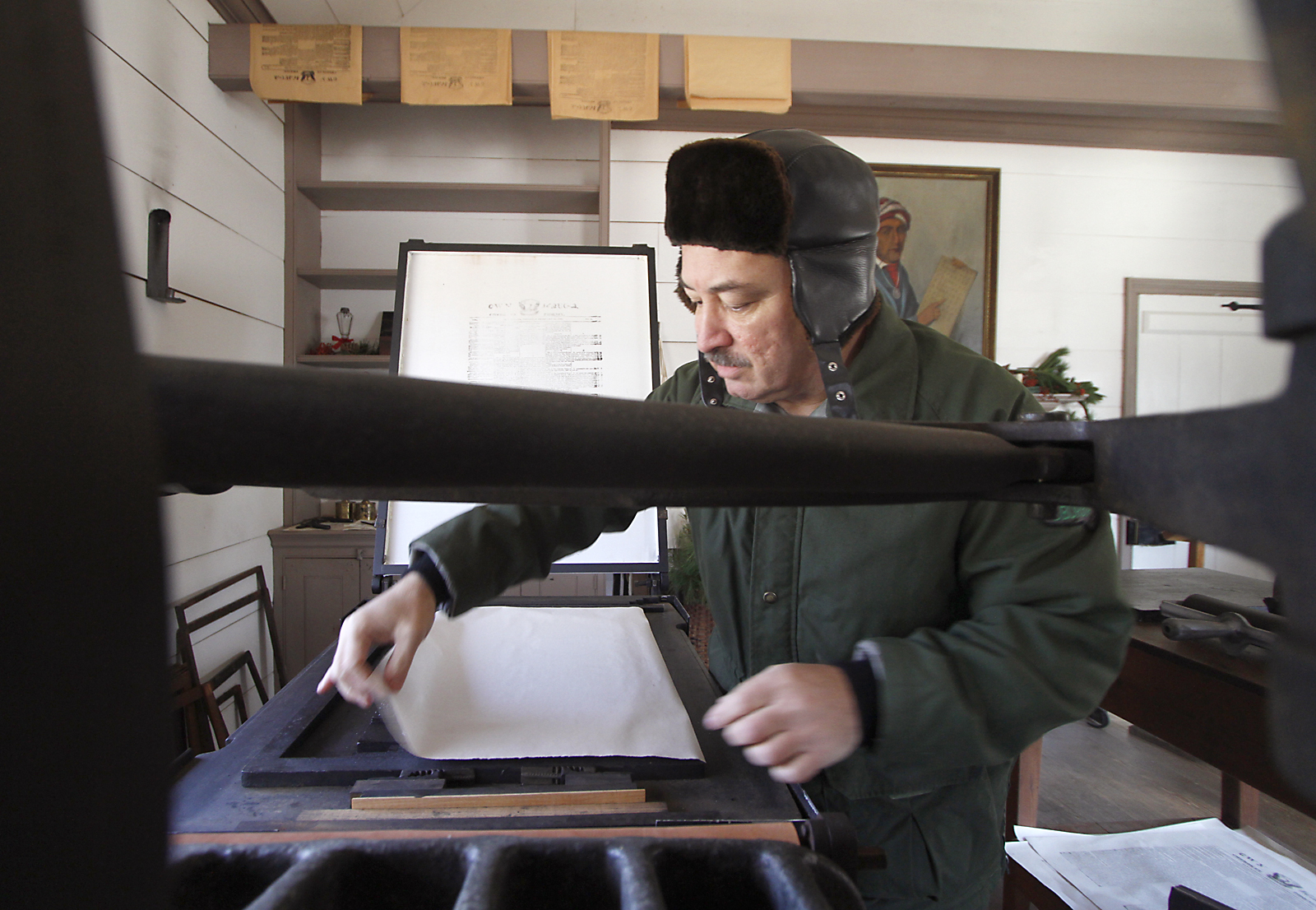Trail of Tears treaty anniversary today
Wednesday, December 29, 2010
CALHOUN, Ga. -- After meeting late into the night in 1835 near present-day Calhoun, a group of about 20 Cherokee leaders arrived at a decision -- they had only one choice.
Around 3 a.m. 175 years ago today, the men signed the Treaty of New Echota, giving up their lands in Georgia and Tennessee and sending the Cherokee west to Oklahoma in a forced relocation known now as the Trail of Tears.
"That was the date that sealed the deal," said Jeff Bishop, president of the Georgia Chapter of the Trail of Tears Association. "It's kind of one of those dark anniversaries that you don't want to celebrate."
Under terms of the treaty, the federal government paid the Cherokee Nation $5 million for the lands and guaranteed 7 million acres of territory in Oklahoma to the displaced people. The Cherokee were given two years to leave the Southeast after the U.S. Senate ratified the treaty, which it did in May 1836.
Bill Anderson, professor emeritus of Cherokee Studies at Western Carolina University, said at least 25 percent of the Cherokee population -- about 4,000 people -- died in the removal process.
"There was not really a family that didn't suffer in some way," he said.
Bishop said his association doesn't have anything planned to commemorate the anniversary but would probably discuss it in a ceremony this spring.
Staff at New Echota Historic Site also are not planning any events because the site is closed on Wednesdays because of state budget cuts.
Ringgold, Ga., resident and Cherokee descendant Alva Crowe said the icy weather around the region in the past week is a good reminder of the conditions that surrounded the time the treaty was signed. With winter in full steam in December 1835, many Cherokee leaders wouldn't have been able to travel to New Echota to negotiate the treaty, he said.
"Today is a good day to start talking about it," said Crowe, a member of the Eastern Band. "People really couldn't come together to vote on it."
The legitimacy of the treaty is questioned by those who say the signers were self-appointed and did not have the authority to speak for the Cherokee Nation. Tribe leaders Major Ridge and Elias Boudinot were among those pushing for the treaty while John Ross, the namesake for Rossville and Ross's Landing, wanted to continue negotiating.
"Boudinot and others wanted to stay, but I think they saw the handwriting on the wall," said David Gomez, manager at New Echota Historic Site.
He and others said North Georgia's Cherokee heritage is often overshadowed by Civil War history. Gomez theorized that family ties drive most Civil War interest, but since the Cherokees were forced out, there are few descendants living in the region to keep their heritage alive.
Also, he said, the removal was not a bright spot for whites nor the Cherokee.
"Not many people will stand up proud for what went on with the Cherokee story," Gomez said.
Charlie Rhodarmer, director of the Sequoyah Museum in Vonore, Tenn., said Civil War sites and Cherokee sites could do a better job of promoting each other to entice history lovers to visit both.
"We're not McDonald's and Hardee's where you go into McDonald's, eat a burger and leave and never go to Hardee's," he said.
Contact staff writer Andy Johns at ajohns@timesfreepress.com or call 423-757-6324.

